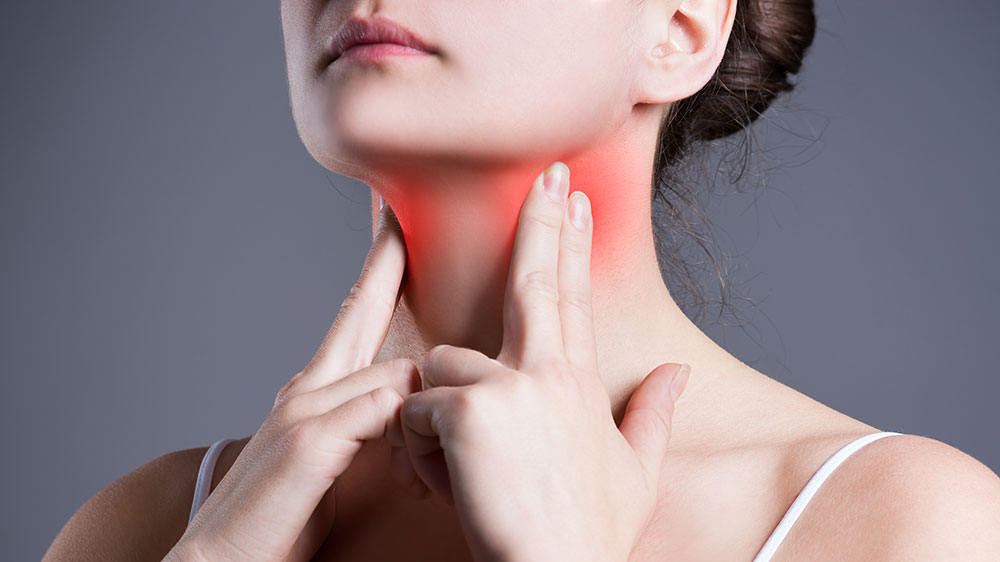Thyroid disorders are common. About 12% of people will experience abnormal thyroid function at some point during their lives. Women are eight times more likely to develop a thyroid disorder than men. (1)
1. Feeling tired

One of the most common symptoms of hypothyroidism in women is fatigue. The thyroid gland is the master control of your metabolism and controls the body’s production of energy. When people are given high levels of thyroid hormone, they feel jittery and anxious. When they have low levels, they feel sluggish and tired. When people have low thyroid function, they may sleep more but still feel tired.
2. Gaining Weight
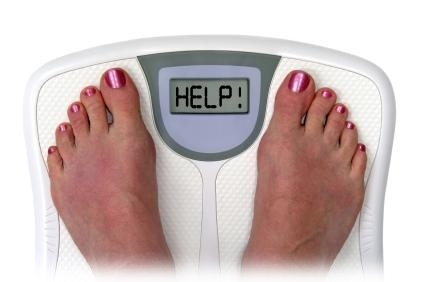
Since the thyroid is the master control for your metabolism, many women will experience weight gain with low thyroid function.
The thyroid is designed to give you energy and burn fat and calories when you need it. It also is designed to slow energy production and switch from burning fat and calories to storing calories for later. In a normal functioning thyroid, this can be life-saving in times when you need to conserve calories. But in a misfunctioning thyroid, you can gain weight and feel fatigued.
3. Feeling Cold

Hypothyroidism can slow down metabolism, which can lead to a drop in core body temperature. As such, some people with low levels of thyroid hormones may feel cold all the time or have a low tolerance of the cold.
This feeling of coldness can persist, even when in a warm room or during the summer months. People with hypothyroidism often report having cold hands or feet, although they may feel that their whole body is cold.
These symptoms are not exclusive to hypothyroidism, however. Circulation problems or anemia can also cause people to feel chilly. (2)
4. Aches in Muscles and Joints
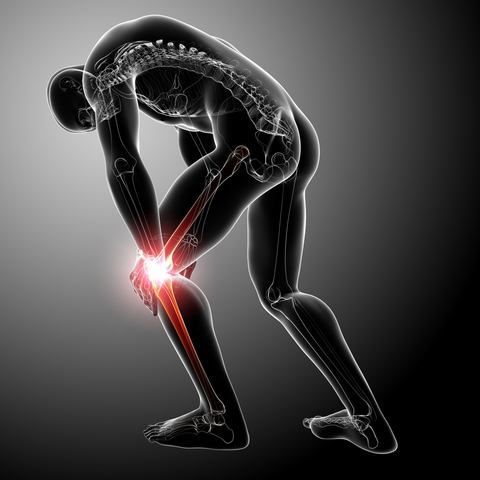
Hypothyroidism can affect a person’s muscles and joints in numerous ways, causing:
- aches
- pains
- stiffness
- swelling of the joints
- tenderness
- weakness
Research also suggests a link between thyroid disorders and rheumatoid arthritis, which is an autoimmune condition that causes painful swelling in the lining of the joints. Effective treatment for both conditions will help people manage their symptoms. (2)
5. Thinning Hair

The thyroid hormone is essential for the growth and maintenance of hair follicles, which are small pockets under the skin where hair grows. If someone experiences severe or prolonged hypothyroidism or hyperthyroidism, they may suffer from hair loss.
Hair roots typically go through cycles of growth and rest. When the body has too much or too little thyroid hormone, it can lead to a condition called telogen effluvium. This condition causes the hair roots to enter the resting stage of the hair cycle too early, resulting in significant hair loss.
People with Hashimoto’s disease may also experience autoimmune alopecia, leading to diffuse hair loss. In contrast, alopecia areata causes hair loss in a more localized pattern. Additionally, some antithyroid drugs used to treat an overactive thyroid, such as methimazole and propylthiouracil (PTU), may have hair loss as a potential side effect.
6. Itchy and Dry Skin

Skin that’s dry and itchy can be a symptom of hypothyroidism. The change in skin texture and appearance is probably due to slowed metabolism (caused by too little thyroid hormone production), which can reduce sweating. Skin without enough moisture can quickly become dry and flaky. Likewise, nails can become brittle and may develop ridges. (5)
One of the main reasons why hypothyroidism causes dry skin is the unbalanced thyroid growth in the body. This itch may be painful, itchy and irritating.
The state of hypothyroidism is often referred to as an under-active thyroid. Since it slows down the pace of the body’s metabolic function, the skin becomes cold, pale and dry. (4)
7. Feeling Down and Depressed
 Feeling unusually depressed or sad can also be a symptom of hypothyroidism. Why? It’s thought that the production of too little thyroid hormone can have an impact on levels of “feel good” serotonin in the brain. With an underactive thyroid turning other body systems down to “low,” it’s not surprising that your mood might sink there, too. (5)
Feeling unusually depressed or sad can also be a symptom of hypothyroidism. Why? It’s thought that the production of too little thyroid hormone can have an impact on levels of “feel good” serotonin in the brain. With an underactive thyroid turning other body systems down to “low,” it’s not surprising that your mood might sink there, too. (5)
8. Trouble Concentrating or Remembering (Brain Fog)
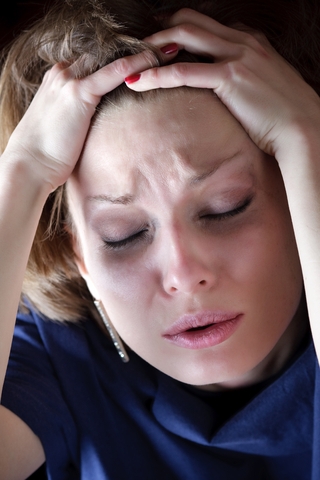
Sure, it could be caused by sleep deprivation or aging, but cognitive functioning can take a hit when your thyroid is out of whack. Too much thyroid hormone (hyperthyroidism) can cause difficulty concentrating and too little (hypothyroidism) may cause forgetfulness and general brain fog. “When we treat patients for hypothyroidism, they are often surprised at how fast their brain fog goes away and how much sharper they feel,” Miller says. “Many women think it’s just something that comes along with menopause when it really is a sign of a thyroid problem.” (5)
9. Constipation

People with hypothyroidism sometimes complain of constipation. The disruption in hormone production has likely caused a slowdown of digestive processes.
“There’s just no motility in your gut,” Miller says. “This is one of the top three most common symptoms of hypothyroidism I see.”
On the reverse side of the spectrum, an overactive thyroid gland can cause diarrhea or more frequent bowel movements, which is why they’re symptoms of hyperthyroidism. (5)
10. Heavy or Irregular Periods
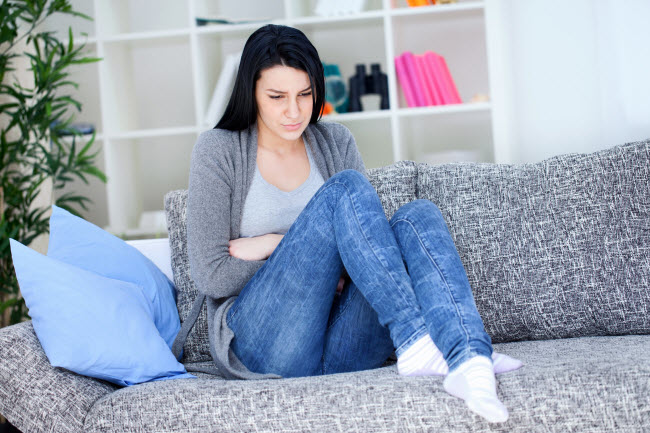
Longer menstrual periods with a heavier flow and more cramps can be a sign of hypothyroidism, where thyroid hormones are in short supply. Periods may be closer together.
On the other hand, with hyperthyroidism, high levels of TH can cause menstrual irregularities differently. Periods are shorter, farther apart, and may be very light. “I always ask my patients about their cycles and if they’re regular,” says Miller. She finds a strong link between irregular cycles and thyroid problems. Additionally, if periods are extra-heavy, she checks for anemia, too.
For more information on natural thyroid care, visit the link here.
If you are interested in natural thyroid treatment or want to schedule a free thyroid consultation, you can contact Dr. Mark A. Scott of Total Health Care Virginia Beach.
References:
- https://www.healthline.com/nutrition/hypothyroidism-symptoms
- https://www.medicalnewstoday.com/articles/324535.php#feeling-cold
- https://www.medicalnewstoday.com/articles/326902.php
- https://www.onlymyhealth.com/why-does-hypothyroidism-cause-dry-skin-1314960657
- https://www.foxnews.com/health/19-signs-your-thyroid-isnt-working-right

